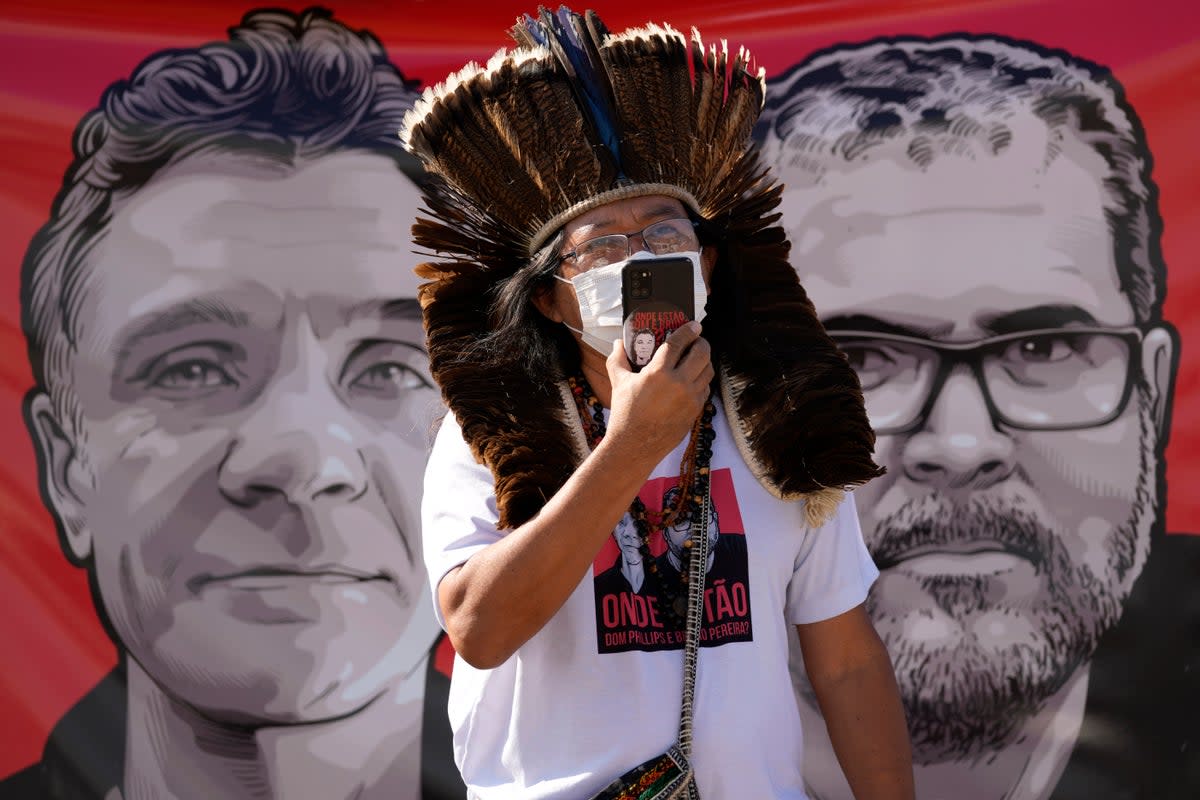Dom Phillips: Third man arrested by police investigating Amazon killings

A third suspect has been arrested by police in Brazil investigating the deaths in the Amazon of British journalist Dom Phillips and expert on indigenous peoples Bruno Pereira.
Police said on Saturday afternoon that Jefferson da Silva Lima, known as Pelado da Dinha, had turned himself in at the police station in the far western town of Atalaia do Norte.
Two other men are already in custody for alleged involvement in the killings: Amarildo Oliveira, known as Pelado, and his brother, Oseney de Oliveira, known as Dos Santos.
Phillips, 57, was reported missing on 5 June and was confirmed dead on Friday following forensic tests on human remains found on the banks of the Itaquai river. Additional remains found at the same site have not yet been identified, but are expected to belong to Pereira, 41.
The latest arrest comes as family and friends of the two men are said to fear that there may have been a cover-up in relation to the killings.
Federal police said on Friday that the suspects had acted alone – a statement that appeared to be intended to draw a line under the case, despite suspicions that the killings may have been ordered by a criminal group or parties with a vested interest who were angered by Phillips’s investigations into illegal logging in the Amazon.
Speaking on Radio 4’s Today programme, Mr Phillips’s sister, Sian Phillips, said his family had been aware there were risks, but that her brother had underplayed them.
“I think he was a leading light in journalism; he was shining a light on an area which is a global problem,” she said.
She added that she was sure the pair were attacked by people “involved in illegal fishing”, but said she now wanted to know whether the suspects were acting alone or with the involvement of “other powerful people”.
Her husband Paul Sherwood said that there were links between illegal fishing, drug trafficking and organised crime in the region.
Experts say that the whole Javari Valley area – home to around 20 uncontacted tribes – has become a hotbed for crime because of its remoteness and a lack of government oversight.
Jonathan Watts, The Guardian's global environment editor and a long-time friend of Phillips, said he had died in "an undeclared global war against nature and the people who defend it".

 Yahoo News
Yahoo News 
